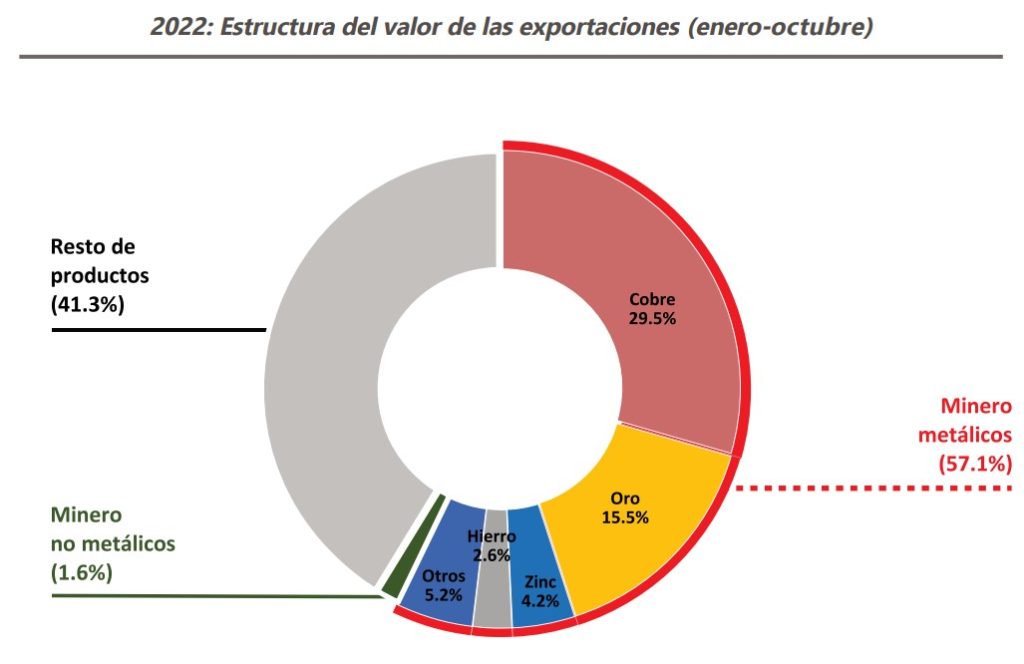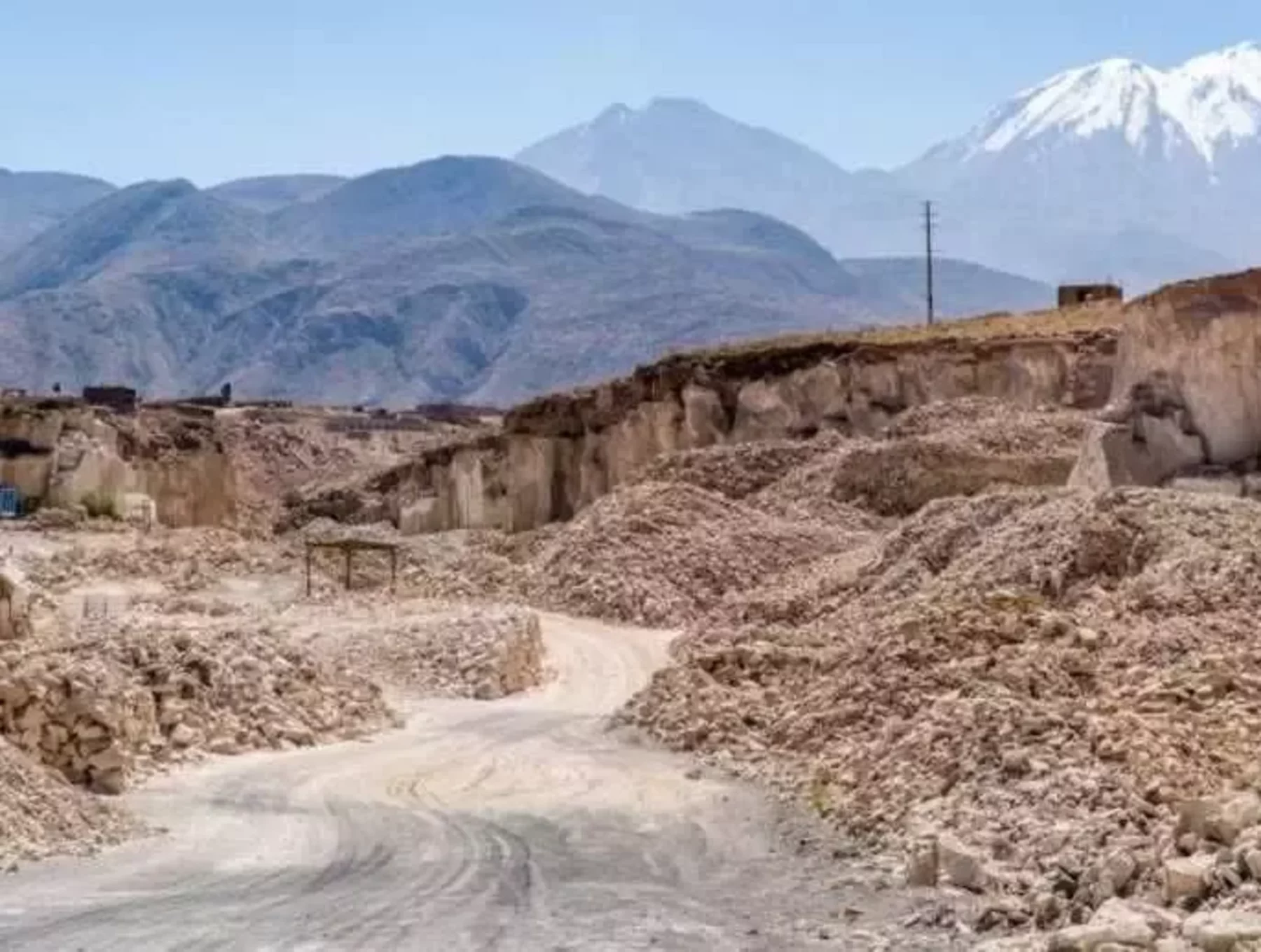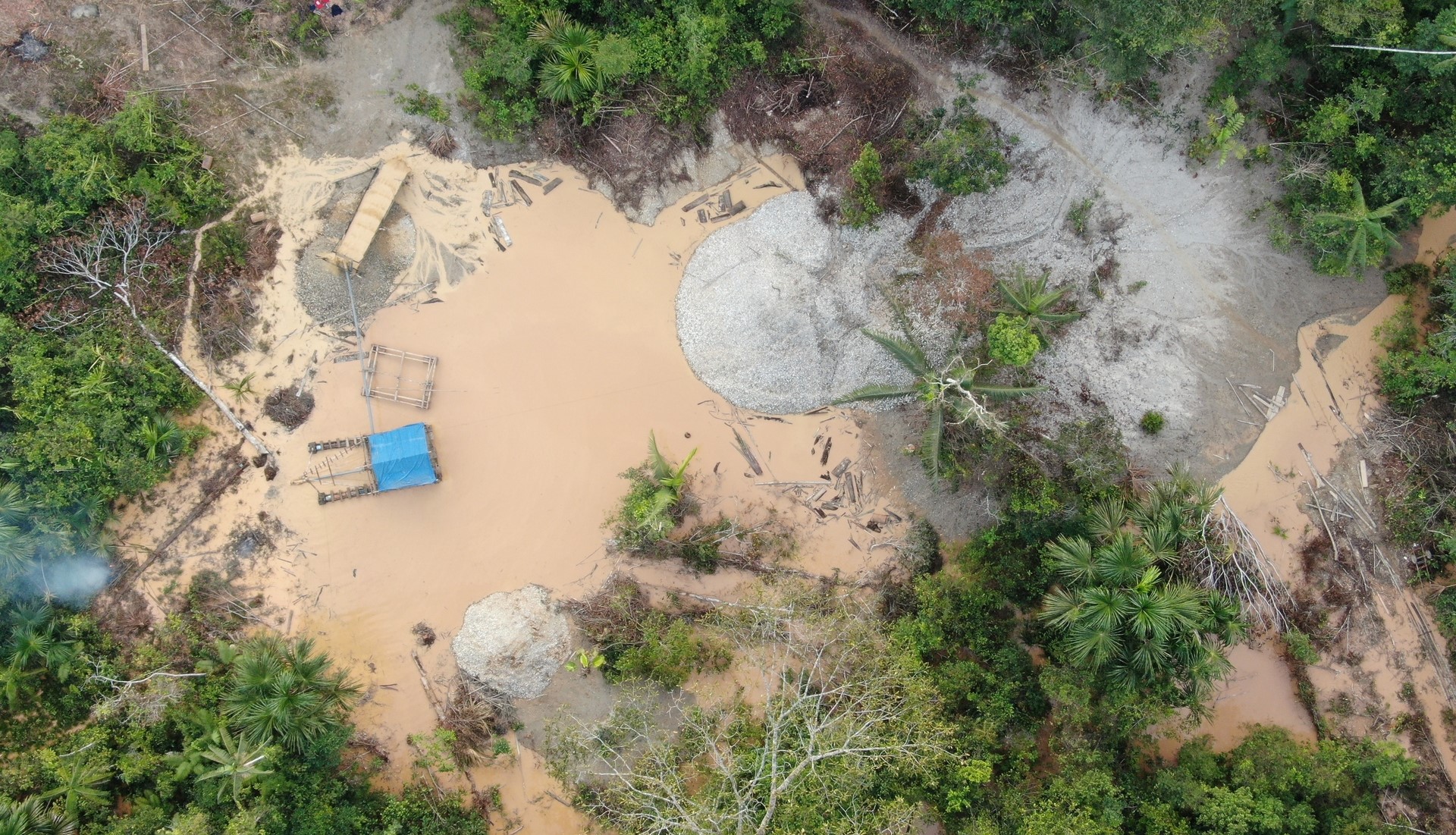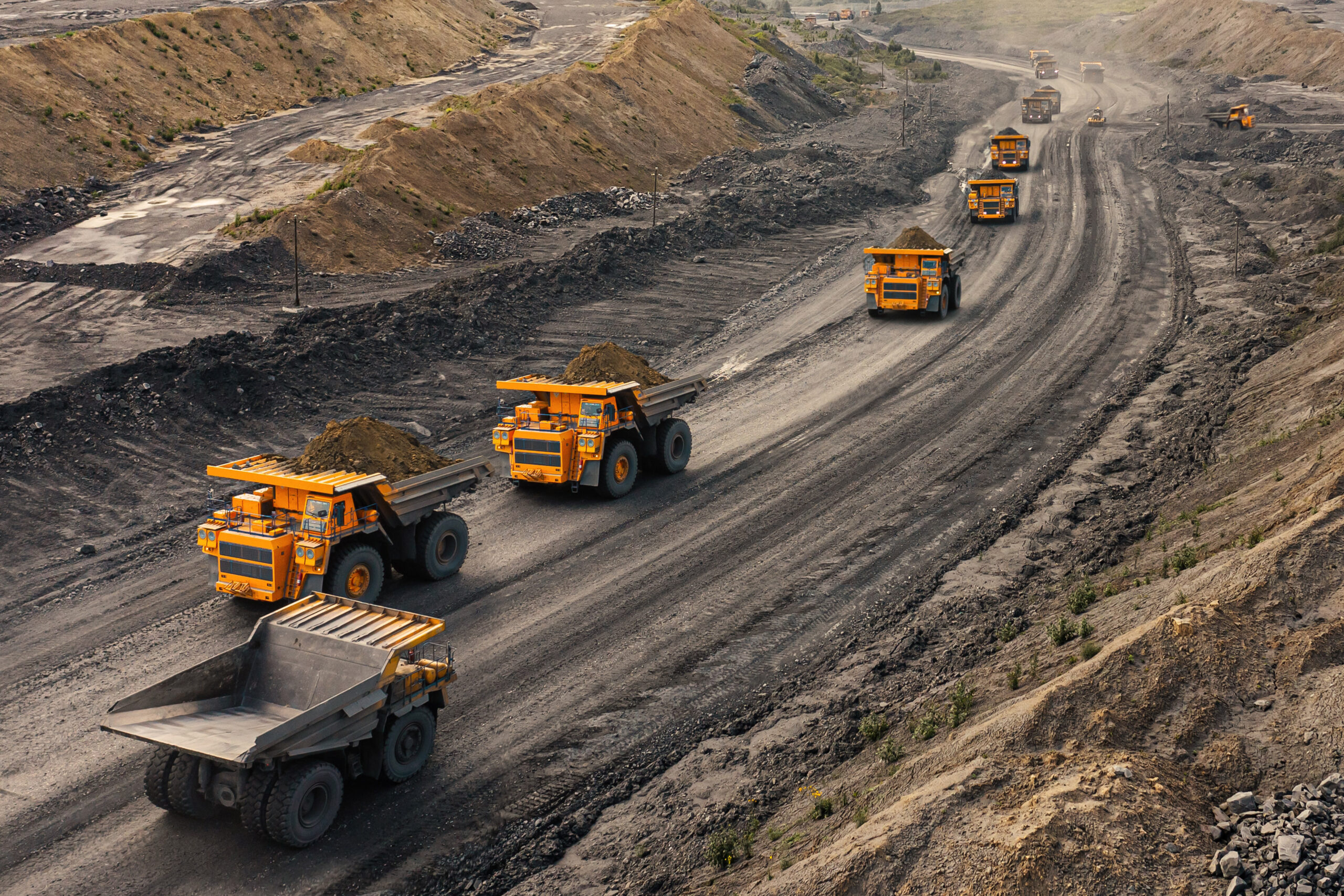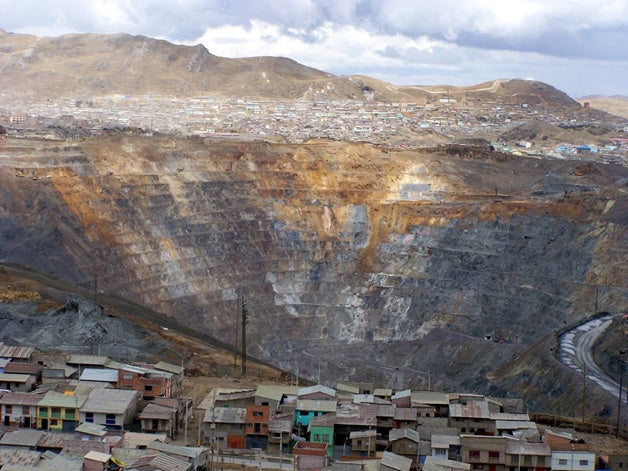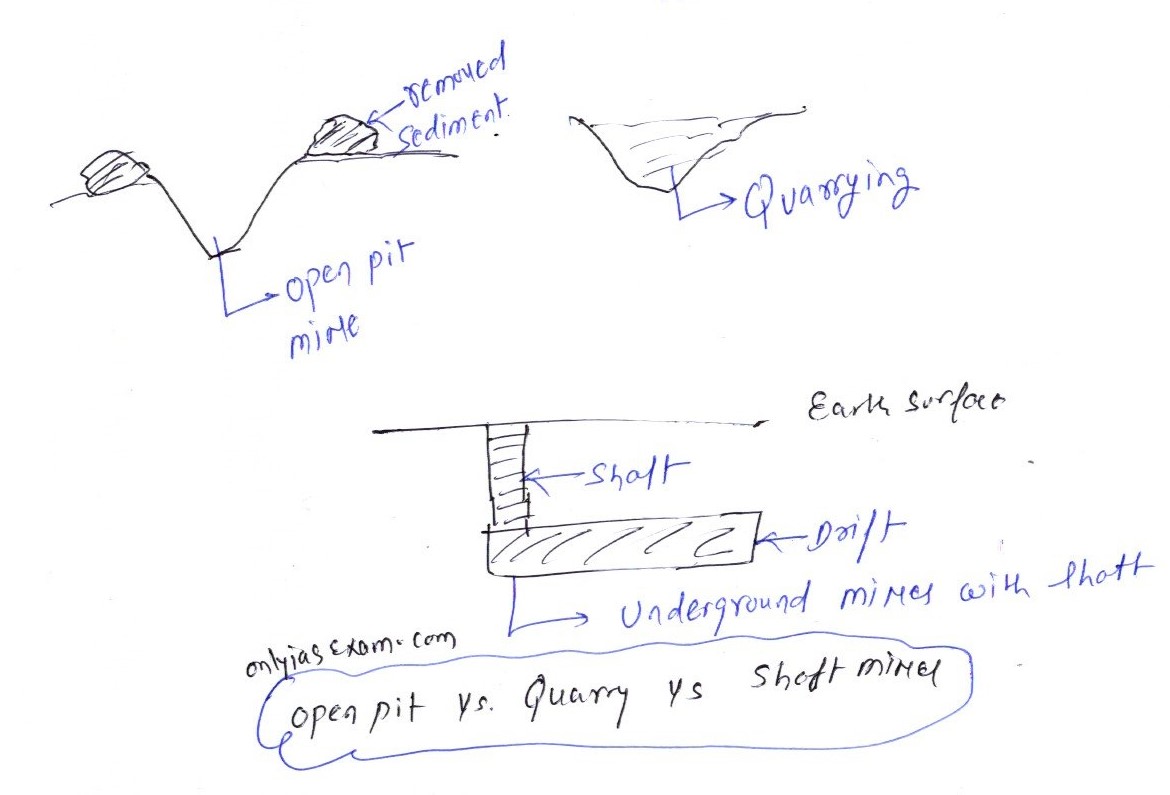Peru’s economy is a fascinating subject, especially when we consider the roles played by mining companies. So, what roles do mining companies play in Peru’s economy? Let’s dive in and explore this intriguing topic!
Mining companies in Peru contribute significantly to the country’s economy. They play a vital role in job creation, stimulating economic growth, and generating revenue through exports.
Not only are mining companies major employers, providing opportunities for thousands of Peruvians, but they also contribute to the government’s fiscal revenue through taxes and royalties. This revenue is then allocated to fund public infrastructure projects, education, healthcare, and social programs that benefit the entire nation.
Now that we have a glimpse into the world of mining companies in Peru, let’s take a closer look at the specific roles they play in shaping the country’s economy. Join me as we unravel the fascinating impact of mining in Peru’s economic landscape!
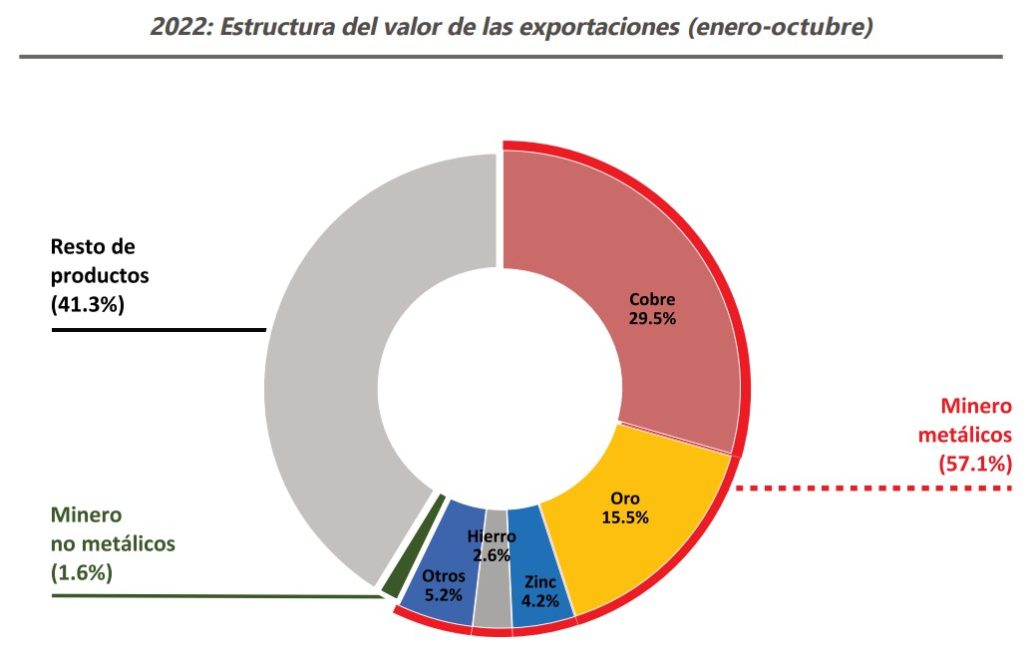
What Roles Do Mining Companies Play in Peru’s Economy?
Mining is a significant industry in Peru, contributing to its economic growth and development. Peru is known for its rich mineral resources, and mining companies play a crucial role in tapping into these resources and driving the country’s economy. In this article, we will explore the various roles that mining companies play in Peru’s economy, from contributing to GDP to creating job opportunities and supporting local communities. Let’s dive in and uncover the importance of mining companies in Peru.
The Importance of Mining in Peru
Peru is one of the world’s top mining destinations, known for its abundant mineral resources such as copper, gold, silver, zinc, and lead. The mining industry in Peru has a profound impact on the country’s economy, making it a vital sector for economic growth, employment, and industrial development. Here are three key roles that mining companies play in Peru’s economy:
Create Jobs and Boost Employment
Mining companies in Peru are major employers, providing thousands of job opportunities across various regions. These jobs not only benefit skilled workers but also provide employment opportunities for local communities and contribute to reducing poverty and inequality. Additionally, mining projects often require a diverse range of professionals, including engineers, geologists, technicians, and environmental specialists, creating a demand for expertise in related fields.
Mining operations also drive job creation indirectly by supporting other industries such as construction, logistics, and retail. For example, the construction of infrastructure and transportation networks to support mining operations requires a skilled workforce, further contributing to employment opportunities. Overall, the mining industry’s ability to generate jobs has a significant impact on Peru’s overall employment rate and economic well-being.
More importantly, mining jobs often provide higher wages compared to other sectors, improving the standard of living for many workers and their families. This, in turn, boosts local economies and leads to increased consumer spending and business growth.
Contribute to GDP and Government Revenue
Mining plays a crucial role in Peru’s gross domestic product (GDP). The extraction and export of minerals contribute significantly to the country’s overall economic output, serving as a backbone for economic growth. Peru’s mining industry directly contributes to the country’s GDP by generating revenue from mineral exports, foreign investments, and local spending.
In addition to contributing to GDP, mining companies in Peru also make substantial contributions to government revenue. Through various channels such as taxes, royalties, and fees, mining operations provide significant income to the government. This revenue is crucial for funding public infrastructure projects, social programs, education, healthcare, and other essential services that benefit the entire population.
The funds generated from the mining industry are often invested in the development of local communities near mining sites, improving their infrastructure, quality of life, and providing access to education and healthcare. This form of social investment enhances the long-term sustainability and inclusivity of mining operations.
Promote Local Economic Development and Infrastructure
Mining companies in Peru play an active role in promoting local economic development. They contribute to the infrastructure development of mining towns and nearby communities, which includes roads, schools, hospitals, and other essential facilities. By investing in infrastructure projects, mining companies help to stimulate economic growth and improve the quality of life for local residents.
Furthermore, mining operations often stimulate economic activity in the surrounding areas. Local businesses and suppliers benefit from the demand for goods and services, ranging from catering and transportation to equipment rentals and maintenance. This multiplier effect bolsters entrepreneurship, diversifies local economies, and helps create a sustainable ecosystem for businesses to thrive.
Many mining companies in Peru also invest in community development programs that focus on education, healthcare, and environmental conservation. These initiatives not only benefit the local communities directly affected by mining operations but also contribute to sustainable and responsible mining practices.
The Environmental Impact of Mining in Peru
While mining plays a vital role in Peru’s economy, it is essential to address the environmental impact associated with mining activities. Uncontrolled mining can lead to deforestation, soil erosion, water pollution, and biodiversity loss. However, many mining companies in Peru are increasingly adopting sustainable practices, investing in advanced technologies, and prioritizing environmental stewardship.
Environmental Protection and Sustainable Mining Practices
Responsible mining companies in Peru are actively committed to minimizing their environmental impact and promoting sustainable mining practices. They invest in technologies that reduce waste generation and optimize resource utilization. For instance, companies use advanced water treatment systems to mitigate water contamination and implement reforestation programs to restore affected areas.
Additionally, mining companies engage in environmental impact assessments to identify and mitigate potential risks associated with their operations. They comply with strict environmental regulations and collaborate with local communities and environmental organizations to ensure the responsible management of natural resources.
Sustainable mining practices also involve supporting the development of renewable energy sources and reducing greenhouse gas emissions. Some mining companies in Peru have implemented clean energy solutions, such as solar power and energy-efficient equipment, to reduce their carbon footprint and contribute to combating climate change.
Social Responsibility and Community Engagement
Mining companies play in Peru’s economy understand the importance of social responsibility and community engagement. They actively engage with local communities, seeking their input, concerns, and aspirations. By involving stakeholders in decision-making processes, mining companies can address environmental challenges and social issues effectively.
Furthermore, responsible mining companies contribute to the social development of local communities through initiatives that focus on education, healthcare, and sustainable economic opportunities. They collaborate with local organizations, government bodies, and non-profit organizations to implement programs that prioritize the well-being of inhabitants and the preservation of local cultures.
Overall, the mining industry companies play in Peru’s economy is taking significant steps towards balancing economic growth with environmental protection and social responsibility. By adopting sustainable practices and investing in community development, mining companies contribute not only to Peru’s economy but also to the long-term well-being of its inhabitants and the preservation of its natural resources.
Driving Innovation and Technological Advancements in the Mining Sector
Mining companies play in Peru’s economy are at the forefront of driving innovation and technological advancements in the mining sector. They continuously invest in research and development to improve operational efficiencies, enhance safety measures, and minimize environmental impact. Here are three key areas where mining companies play in Peru’s economy are driving innovation:
Exploration and Extraction Techniques
Peru’s mining companies invest heavily in exploring new mining sites and developing advanced techniques for mineral extraction. They use state-of-the-art technologies such as remote sensing, satellite imaging, and geological modeling to identify potential mineral deposits and assess their economic viability. These advancements in exploration techniques help mining companies play in Peru’s economy optimize their operations and prioritize sustainable mining practices.
In addition to exploration, mining companies are also investing in extraction technologies that reduce waste, minimize water usage, and enhance recovery rates. By adopting innovative techniques such as bioleaching and carbon capture, mining companies can improve resource utilization and reduce their environmental impact.
Moreover, advancements in automation and robotics are making mining operations safer and more efficient. The use of autonomous vehicles, drones, and remote-controlled machinery reduces the exposure of workers to hazardous conditions, increases operational productivity, companies play in Peru’s economy and improves overall safety standards.
Digitalization and Data Analytics
Mining companies play in Peru’s economy are embracing digitalization to optimize their operations and improve decision-making. They implement advanced data analytics and machine learning algorithms to gain valuable insights into production processes, equipment performance, and resource allocation. By leveraging big data, mining companies can identify areas for improvement, reduce downtime, and enhance operational efficiencies.
Digital technologies also play a crucial role in ensuring the safety of workers. Real-time monitoring systems, wearable devices, and sensor technologies enable companies to track environmental conditions, detect potential hazards, and prevent accidents in the workplace.
Furthermore, digitalization improves transparency and sustainability in the mining sector. Blockchain technology, for example, enables companies to track the origin and movement of minerals, ensuring responsible sourcing and ethical practices.
Sustainable Energy Solutions
Mining operations require a significant amount of energy, and mining companies play in Peru’s economy are increasingly turning to sustainable energy solutions to reduce their environmental impact. They invest in renewable energy sources such as solar and wind power, as well as energy storage systems to minimize reliance on fossil fuels. By integrating clean energy solutions into their operations, mining companies can reduce greenhouse gas emissions and contribute to a more sustainable future.
In addition to adopting renewable energy sources, mining companies are also exploring energy efficiency measures. They invest in energy-efficient equipment, implement process optimizations, and promote the recycling and reuse of materials. These initiatives not only reduce their environmental footprint but also contribute to cost savings and long-term operational sustainability.
Conclusion
Mining companies play crucial roles companies play in Peru’s economy, from job creation and GDP contribution to promoting local economic development and driving technological advancements. While mining activities can have environmental impacts, responsible companies are actively adopting sustainable practices and engaging with local communities to ensure long-term environmental and social stewardship.
As the mining industry continues to evolve, innovation and technological advancements will drive the sector towards increased efficiency, safety, and sustainability. By embracing digitalization, exploring new extraction techniques, and investing in renewable energy solutions, mining companies play in Peru’s economy are leading the way towards a more responsible and environmentally friendly mining sector.
It is essential for mining companies to maintain a balance between economic growth, environmental protection, and social responsibility. Through collaborative efforts and continuous improvement, mining can coexist harmoniously with Peru’s natural resources and contribute to the country’s sustainable development.
Key Takeaways: What roles do mining companies play in Peru’s economy?
- Mining companies play in Peru’s economy contribute significantly to the country’s economy, bringing in substantial revenue through exports of minerals like copper, gold, and silver.
- These companies provide employment opportunities, boosting the job market and reducing unemployment rates in the country.
- Peru’s mining industry also attracts foreign investment, leading to economic growth and development.
- The government relies on mining taxes and royalties to fund public projects and social programs.
- However, mining operations can have negative impacts on the environment and local communities, requiring careful management and regulation.
Frequently Asked Questions
Mining companies play significant roles companies play in Peru’s economy, contributing to its growth and development. Here are some commonly asked questions about their role and impact:
1. How important are mining companies to Peru’s economy?
Mining companies are essential to Peru’s economy as mining is one of the country’s key industries. They contribute significantly to Peru’s GDP, export revenues, and government tax revenue. The mining sector companies play in Peru’s economy provides employment opportunities, boosts infrastructure development, and stimulates related industries such as transportation and manufacturing.
Peru is rich in mineral resources, and mining companies play a vital role in harnessing those resources for economic growth. The revenue generated from mining supports various sectors, including education, healthcare, and social programs, benefiting the overall population.
2. How do mining companies contribute to Peru’s export earnings?
Mining companies play in Peru’s economy are major contributors to the country’s export earnings. Peru is one of the largest producers of copper, gold, and silver globally. These minerals, along with other resources like zinc, lead, and iron ore, are extracted by mining companies and exported to other countries.
The export of minerals provides a significant source of foreign currency for Peru, contributing to its balance of trade. This revenue helps strengthen Peru’s economy and supports the importation of goods and technologies that drive further development.
3. Do mining companies play in Peru’s economy and prioritize environmental sustainability?
Mining companies play in Peru’s economy and are increasingly prioritizing environmental sustainability. The Peruvian government has implemented strict regulations to ensure responsible mining practices and environmental protection. Mining companies are required to obtain environmental permits and follow stringent environmental impact assessment processes.
Furthermore, many mining companies have adopted sustainable practices, including reforestation, water management systems, and waste management initiatives. They are investing in technologies that reduce the environmental impact of mining operations, such as water recycling and energy-efficient processes. Additionally, some companies engage in community development projects to mitigate the environmental and social impacts of mining.
4. How do mining companies contribute to local communities in Peru?
Mining companies play in Peru’s economy contribute to local communities through various initiatives. They often engage in social programs that focus on education, healthcare, and infrastructure development. These initiatives aim to improve the quality of life for local residents and promote sustainable development.
Additionally, mining companies provide employment opportunities for community members, empowering them economically. They also support local businesses and encourage entrepreneurship, creating a ripple effect that benefits the entire community. Through their corporate social responsibility efforts, mining companies contribute to community empowerment and social development.
5. What steps are taken to ensure the safety of workers in mining operations?
Ensuring the safety of workers is a top priority for mining companies play in Peru’s economy. They adhere to strict safety protocols and standards to prevent accidents and promote a safe working environment. These protocols include regular safety trainings, the provision of personal protective equipment, and the implementation of safety guidelines at every stage of mining operations.
Mining companies also employ health and safety professionals to conduct risk assessments, monitor workplace conditions, and ensure compliance with safety regulations. They continuously invest in innovative technologies to improve safety standards and the overall well-being of their employees. The safety of workers remains a fundamental concern for mining companies play in Peru’s economy.
Why does CASTILLO want to NATIONALIZE MINING in PERU? – VisualPolitik EN
Summary
Mining plays a big role companies play in Peru’s economy, bringing in lots of money and creating jobs. However, it also has negative impacts on the environment and local communities.
Mining companies play in Peru’s economy contribute to the country’s economy by generating revenue and providing employment opportunities. They extract valuable resources like gold, copper, and silver, which are then sold and exported. This brings money into the country and helps support economic growth.
On the other hand, mining can harm the environment through deforestation, pollution, and habitat destruction. It can also negatively affect local communities by displacing people from their homes and disrupting their way of life.
Understanding the positive and negative consequences of mining is important in order to make informed decisions about the role companies play in Peru’s economy. Balancing economic benefits with environmental protection and the well-being of local communities is crucial for sustainable development.
Click here to read about Are There Any Emerging Metal Mining Trends In Peru Compared To Global Trends?

